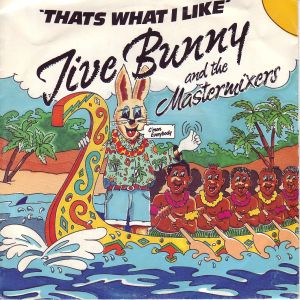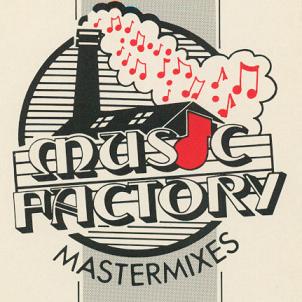
"In the Mood" is a popular big band-era jazz standard recorded by American bandleader Glenn Miller. "In the Mood" is based on the composition "Tar Paper Stomp" by Wingy Manone. The first recording under the name "In the Mood" was released by Edgar Hayes & His Orchestra in 1938.
Telstar Records was a British record label that operated from 1982 to 2004.
"It Takes Two" is a hit single recorded in late 1965 by American singer-songwriter Marvin Gaye and American soul singer Kim Weston for Motown's Tamla label.
This is a summary of 1989 in music in the United Kingdom, including the official charts from that year.

"Santa Baby" is a song performed by American singer Eartha Kitt with Henri René and His Orchestra and originally released in 1953. The song was written by Joan Javits and Philip Springer, who also used the pseudonym Tony Springer in an attempt to speed up the song's publishing process. Lyrically, the song is a tongue-in-cheek look at a Christmas list addressed to Santa Claus by a woman who wants extravagant gifts such as sables, yachts, and decorations from Tiffany.
A remix service is a company that provides remixed music to disc jockeys.

"Swing the Mood" is a song by British novelty pop music act Jive Bunny and the Mastermixers, released as the first single from their debut album, Jive Bunny: The Album (1989). Produced by the father and son DJ team of Andy and John Pickles, "Swing the Mood" is a cut and paste record which fused a number of early rock and roll records with liberal use of Glenn Miller's "In the Mood".

"That's What I Like" is a song by British novelty pop music act Jive Bunny and the Mastermixers, released on 2 October 1989 as the second single from their debut album, The Album (1989). It followed "Swing the Mood" to number one in the United Kingdom, Ireland and Spain and went top ten in several countries. In the United States, it failed to build on the success of the group's first hit, peaking at number 69 on the Billboard Hot 100.

"Let's Party" is a song by British novelty pop music act Jive Bunny and the Mastermixers, the third single released by the father-and-son DJ team Andy and John Pickles. Released on 4 December 1989, it reached the top of the UK Singles Chart for a single week the same month. They became only the third act to reach No. 1 with their first three singles, following on from Gerry and the Pacemakers in 1964 and Frankie Goes to Hollywood in 1984, and took the shortest time to achieve the feat.
Tony Calder was an English record manager, impresario, talent-spotter, promoter and public relations agent. He was Andrew Loog Oldham's business partner from 1963 to December 1969.
British pop music is popular music, produced commercially in the United Kingdom. It emerged in the mid-to late 1950s as a softer alternative to American rock 'n' roll. Like American pop music it has a focus on commercial recording, often orientated towards a youth market, as well as that of the Singles Chart usually through the medium of relatively short and simple love songs. While these basic elements of the genre have remained fairly constant, pop music has absorbed influences from most other forms of popular music, particularly borrowing from the development of rock music, and utilising key technological innovations to produce new variations on existing themes. From the British Invasion in the 1960s, led by The Beatles, British pop music has alternated between acts and genres with national appeal and those with international success that have had a considerable impact on the development of the wider genre and on popular music in general

"Donald Where's Your Troosers?" is a comic song about a Scotsman who wears a kilt rather than trousers. It was written by Andy Stewart with music by Neil Grant. When performed by Andy Stewart and the White Heather Group, it was a hit in 1960, reaching number 37 in the UK Singles Chart, and number 1 in the Canadian CHUM Charts. When re-released in 1989, it became an even bigger hit, reaching number 4 in the UK.

Jive Bunny: The Album is the debut album by Jive Bunny and the Mastermixers, released in 1989 by Telstar Records and produced by Les Hemstock and Andy Pickles. It includes two UK number one singles: "Swing the Mood" and "That's What I Like". Each of the album's tracks is made up of a medley of songs and samples from the 1940s to the 1970s.

Music Factory is a UK promotional remix service that started in 1985. To this day, the service provides monthly Mastermix albums with exclusive mixes to qualified disc jockeys, as well as having provided a number of spinoff services over the years. It is also responsible for the Jive Bunny and the Mastermixers releases that were made commercially available.

"Wouldn't Change a Thing" is a song performed by Australian singer-songwriter Kylie Minogue, recorded for her second studio album Enjoy Yourself (1989). The song was written by Stock Aitken Waterman, and was released on 24 July 1989 by Mushroom and PWL Records. The song was released as the second single off the album.

"Y'a pas que les grands qui rêvent" is the a 1989 song by Belgian singer Melody. Written by Guy Carlier and Jean-Pierre Millers, it was released as her debut single in August 1989, when she was 12-years-old. Later, it was included on Melody's debut album, Danse ta vie, released in 1991. It achieved success in France, peaking at number two for one month.

"Mood Ring" (also known as "Mood Ring (By Demand)" upon its 2020 international release) is a song recorded by American singer Britney Spears for her ninth studio album, Glory (2016). It was written by Dijon McFarlane, Nicholas Audino, Te Whiti Warbrick, Lewis Hughes, Jon Asher, and Melanie Fontana. The "electro-tinged" R&B song was produced by DJ Mustard and co-produced by Twice as Nice, with vocal production provided by Asher.
The Tidy Boys are a UK-based hard dance music duo formed of Andy Pickles and Amadeus Mozart. They are known for creating the Tidy Trax record label, and their hard house DJ and production work. Pickles and Mozart are also known as Hyperlogic, the Handbaggers, and Untidy Dubs.










